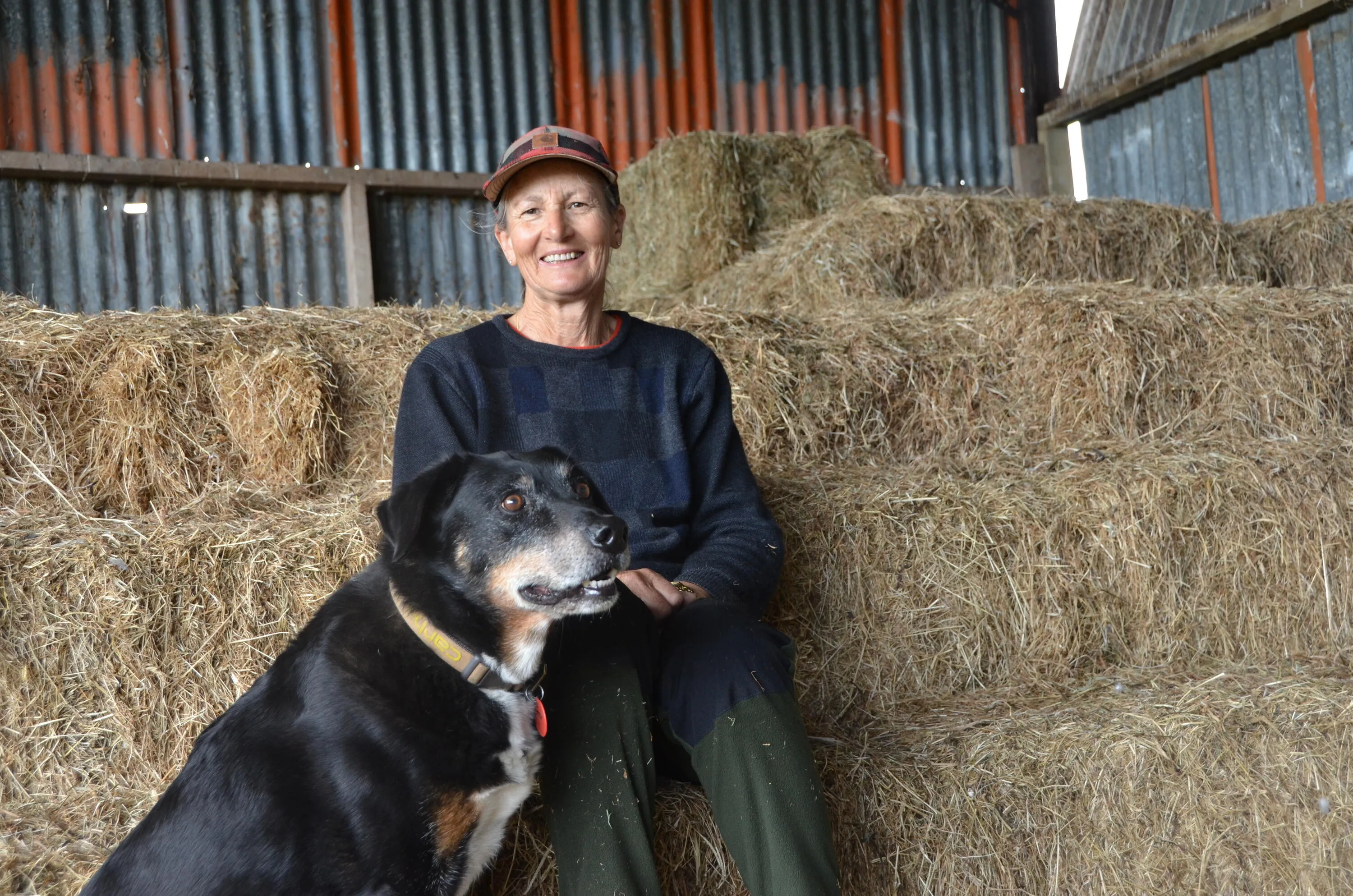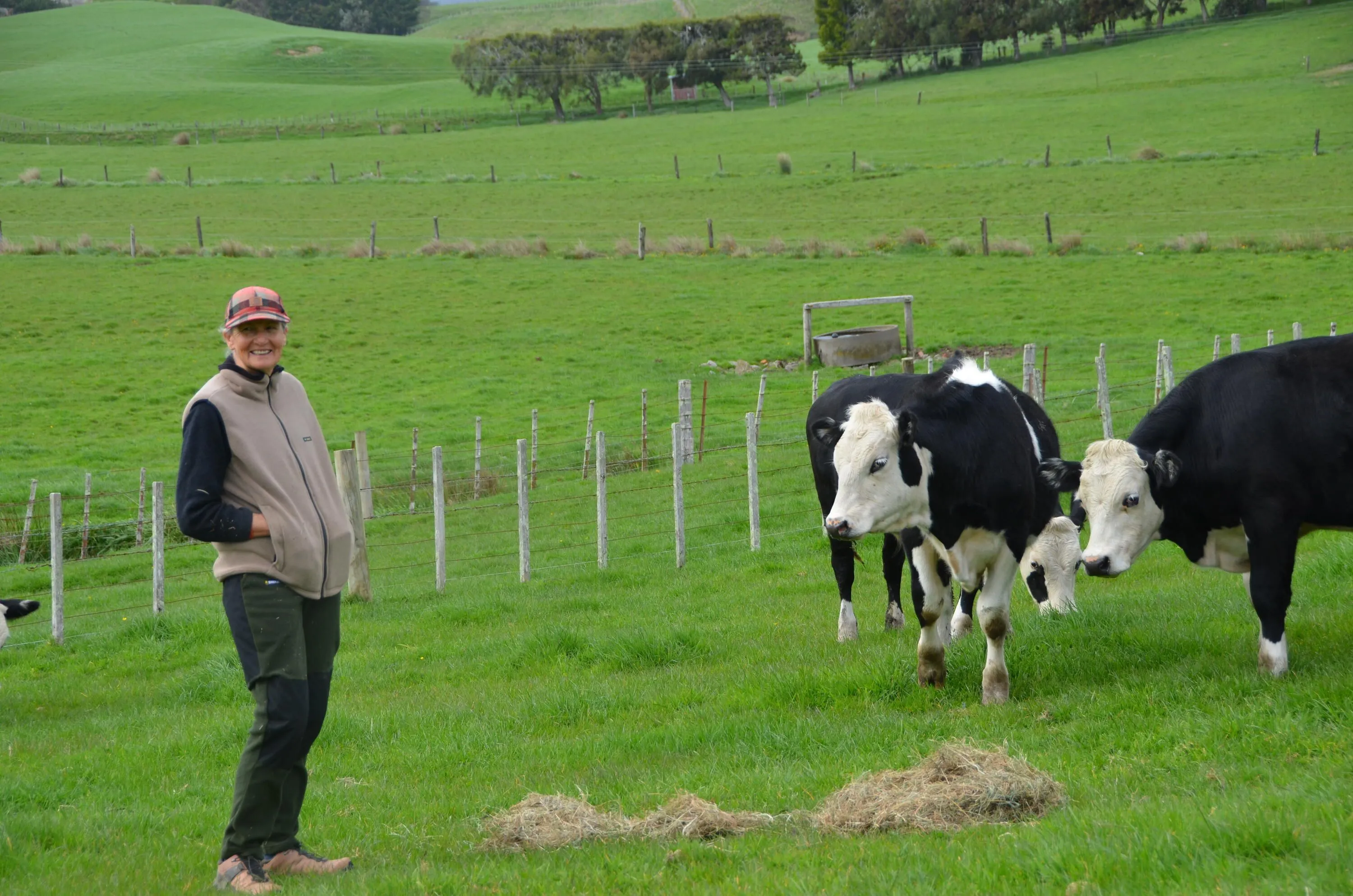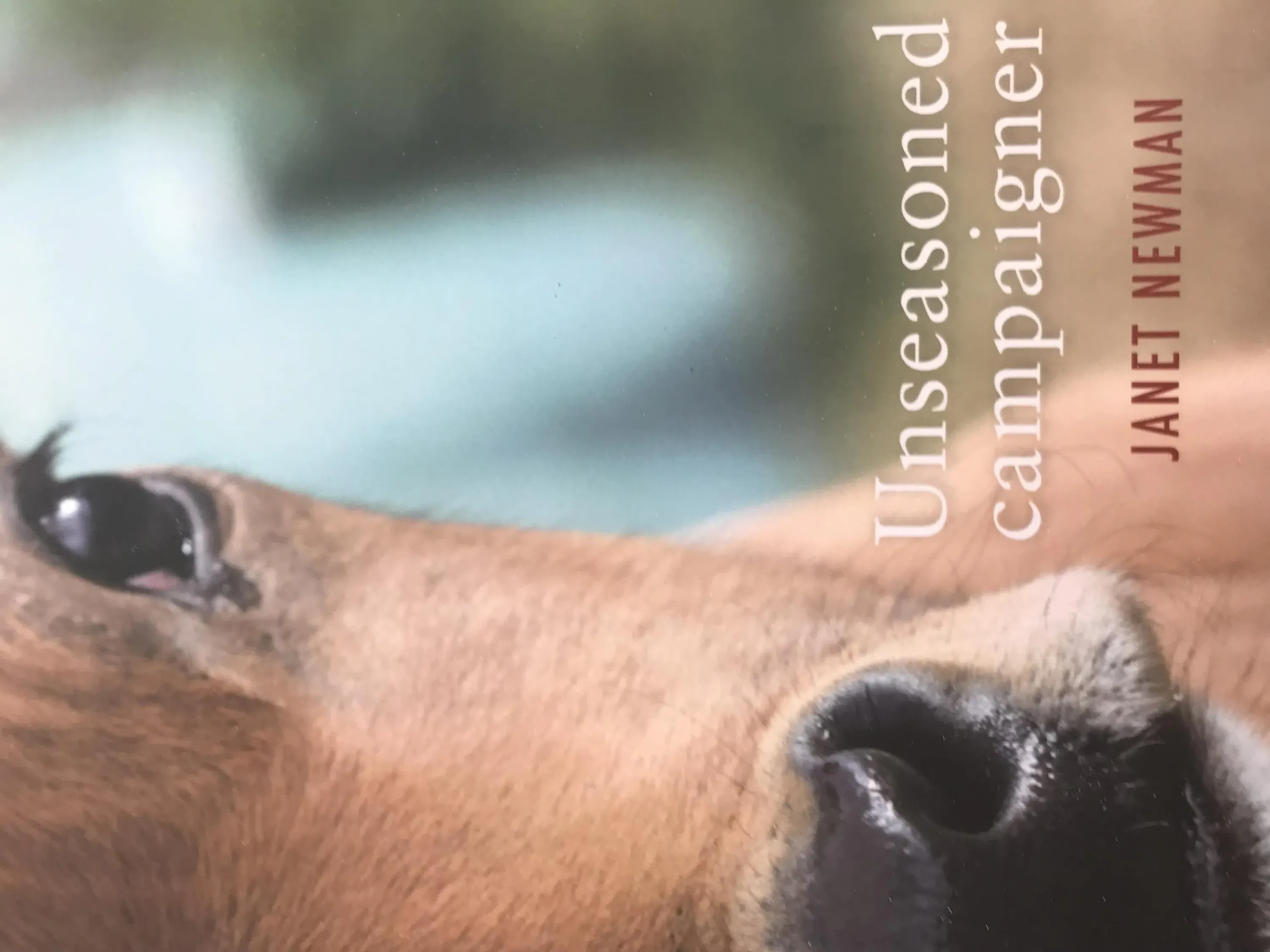Poetry From the Paddocks
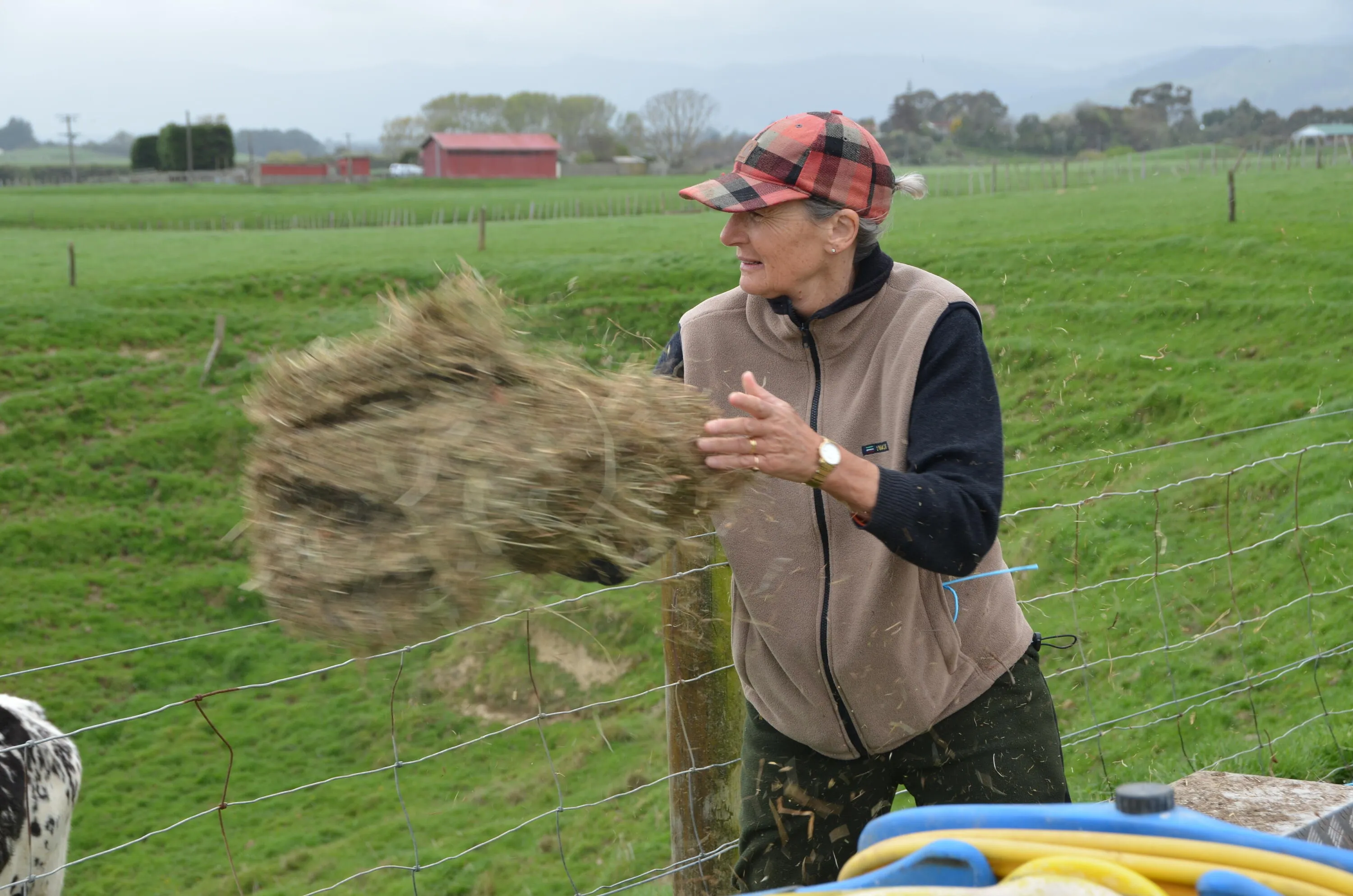
If you have ever cared for, culled, or castrated another living creature, Horowhenua Poet Janet Newman has published a collection of Poems that’s sure to resonate.
She has used her experiences of life on the land as the inspiration for her recently released book
they come, warm breath on your skin.
See them paw the soft peat,
worry the old scents where you buried
the drowned steer two winters past.
(From - Drenching)
Watching Newman feed out to a recently arrived mob of yearling cattle, you see love for both animals and the land they graze on.
Also, how they - along with many aspects of rural life - became the inspiration for her collection of poems, Unseasoned Campaigner.
“The land is important to me. But my time on it is a blip,” says Newman.
“Tangata whenua have been here longer. This land was obtained by the railways and then sold to farmers. You see the stumps of the Kahikateas, you know this land used to be a forest.”
She’s talking about, Kukutauaki Rd in a place called Koputaroa, just north of Levin in the Horowhenua.
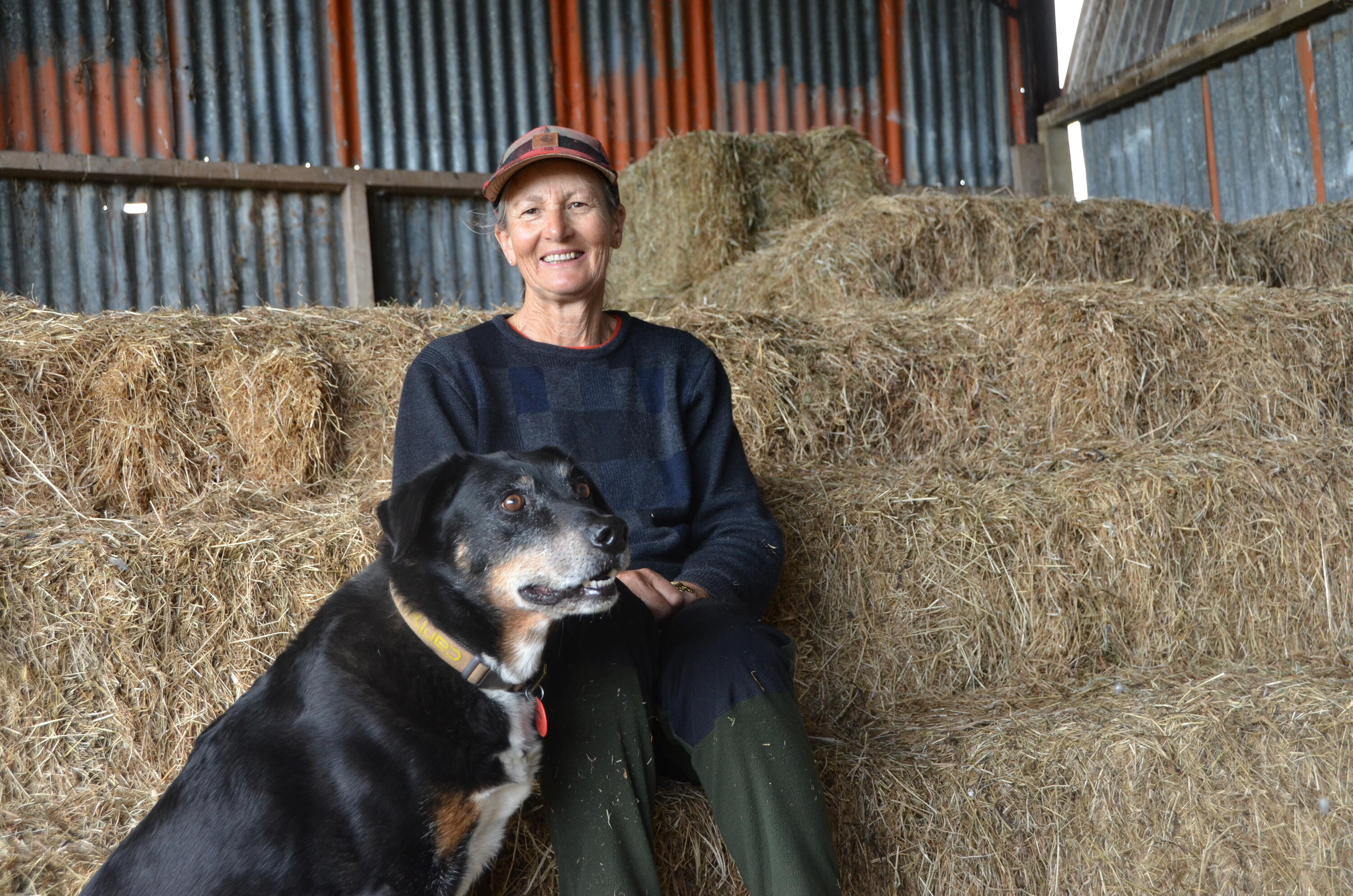
Janet Newman. Photo: Bevan Sanson.
It’s a 60-acre block that remains of the family farm. Land Newman’s late father farmed in a manner much different to today’s more factory-like operations.
“We milked 70 cows in a four-stand shed. That’s unheard of now,” says Newman.
“We knew the cows by name and they were a conversation topic at the dinner table. The way we farm changes the way we interact with animals and the land.”
Milkers on farm bikes. In my dad’s day,
farmers were called cow cockies,
a name you don’t hear any more.
(From - How now?)
Within Unseasoned Campaigner, poems speak of the juxtaposition of life on the land, containing - arguably - the first poems about drenching and dehorning calves.
There’s even, Ode to Mycoplasma bovis.
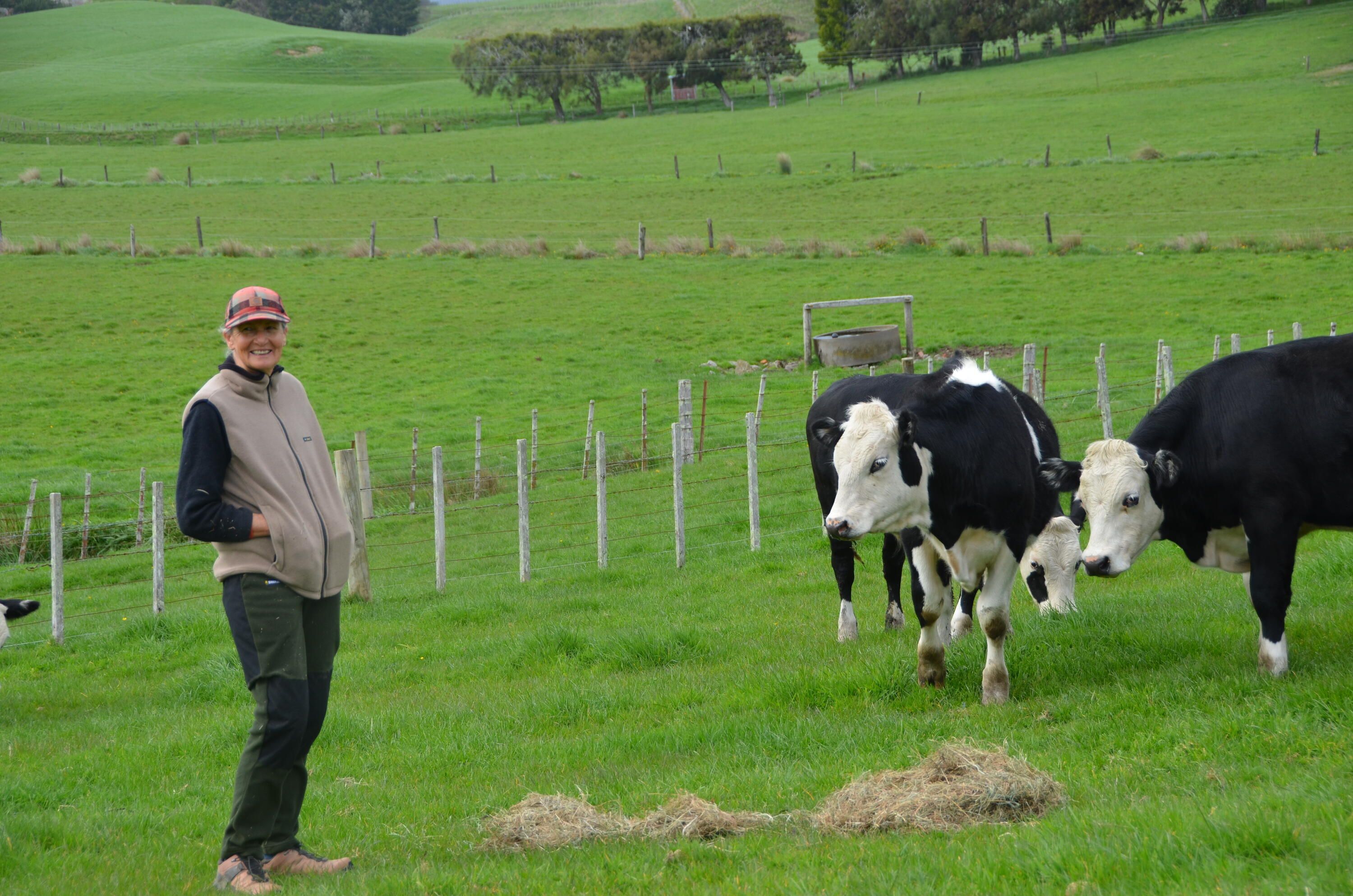
Janet Newman with some of her poetic inspirations. Photo: Bevan Sanson.
“There’s been a lot of New Zealand poems written about the land, but not a lot about farming.
“Ruth Dallas, who wrote poems like Milking before dawn in the 40s wrote about life on the farm. But it was more romanticising it.
“This collection is more about the paradox of farming and the unintended consequences of your actions and nature - like a calf dying. Farming shows you that we’re not perfect.”
Next year I’ll be ready,’ I say,
splinting my shin on the shovelhead,
jarring the blade on clay as hard as tundra.
(From- Unseasoned Campaigner)
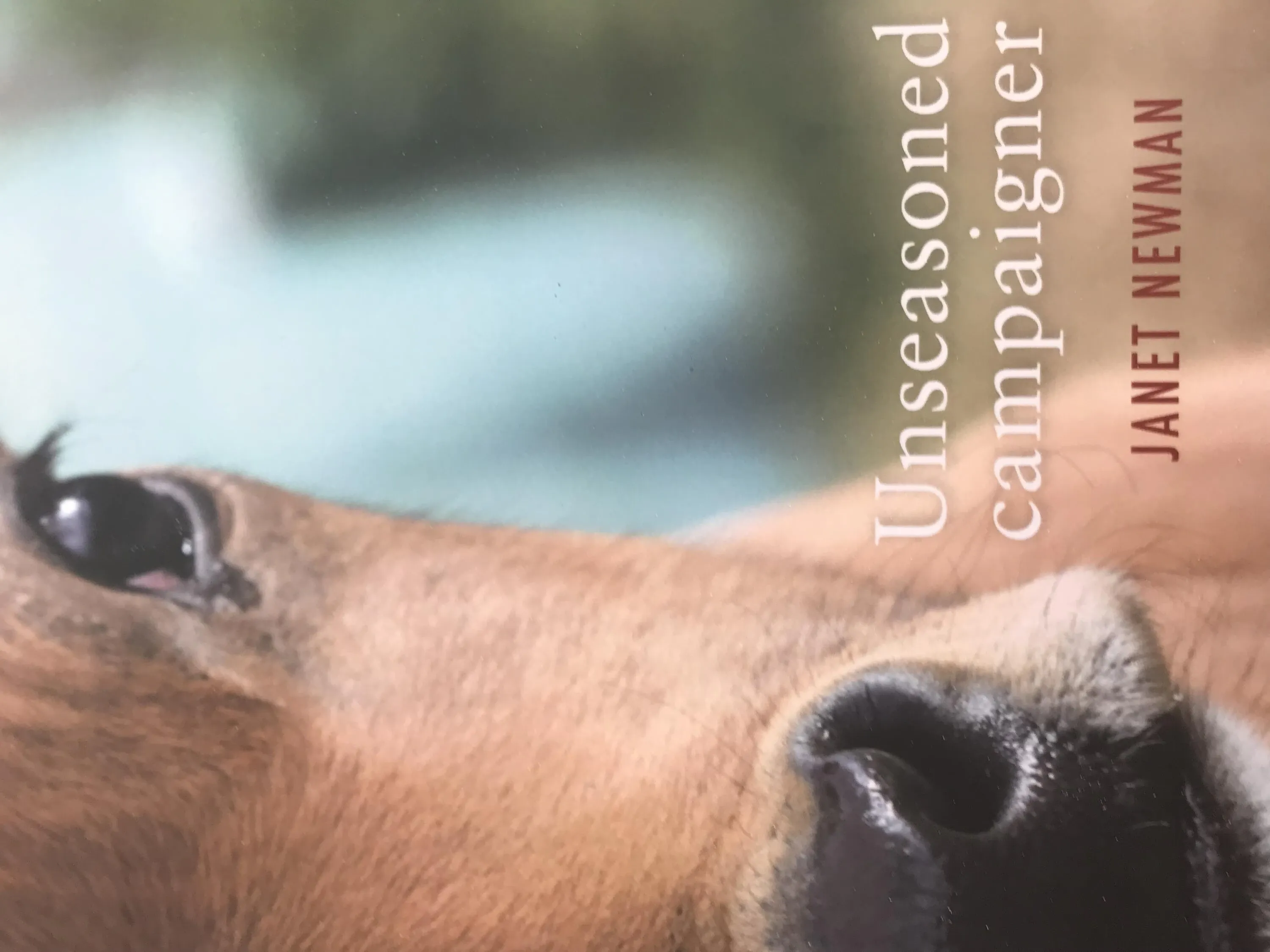
Newman, whose 2019 PhD thesis was based on “Traditions of Ecopoetry in Aotearoa”, says Unseasoned Campaigner explores memories of her father and the more practical encounters that come with life on the farm.
“Dad was a hard man. A man of his generation. Physical work in a time where farm machinery was scarce and there was not a lot of money around. He went through the war - that experience shaped that generation.
“But there was also a tenderness there. He’d tell us that our pet lambs had returned to their mothers, when in fact we were eating them.”
“In Tender, the poem talks of how Dad hated rabbits because they would eat grass intended for the cows. But one time he caught one and gave it to me as a pet.”
except the day he lifted from his pocket
the kit spared from the hay mower
by his Geneva Convention
and held it out to me in cupped palms
as trembling proof of his boyhood.
(From – Tender)
Within the collection, you see the paradox of caring for something, even though the endgame is about making sure you can earn enough to raise your family.
“You have to get them onto the truck. You are sensitive to the needs of the animals. However, it’s about giving them a good life whilst they are here because - at the end of the day - you’re on a farm and they are a commodity. But you have to show your respect for animals. Respect and care.”
Death comes to everything on the farm. Poems about her father and his passing sit alongside tales of animals that are no longer.
He was a soldier named for a peacemaker
for hope that keeps pushing through
Like rye and clover.
(From – Weeds)
As for the writing process, Newman explains “it takes a long time to write a poem. You put it down, let it stew and return to it. Like farming, it takes patience.
“I love seeing the local names written down. Horowhenua, Ohāu, Koputaroa. The name of this road; Kukutauaki. This land has memories.”
And with that, the mob is fed. Newman jumps onto the quad bike and heads back to the hayshed.
“It looks like rain,” I mutter.
“That’s life on the land,” says Newman.
A pragmatist and farmer/poet through and through.
